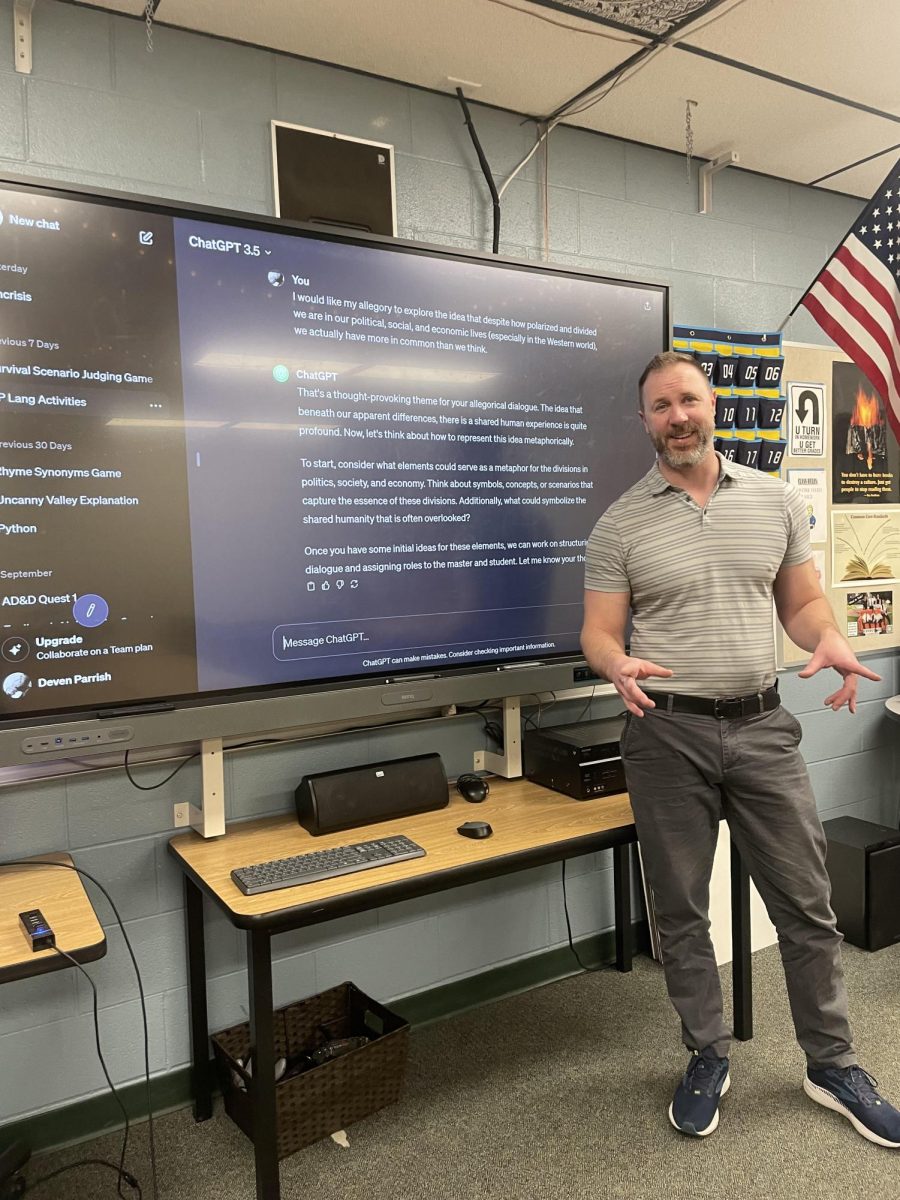Longer school days could have negative effects on students, teachers
By Staff Writer: Rachel Cichon
There hasn’t been a winter as abominable as the one currently raging outside in the lifetime of any Howell High student, but despite the freezing temperatures and perilous driving conditions, students have rejoiced at the abundance of “snow days”. However, as the snow days have increased in number , surpassing the school’s limit of six snow days a year, administrators all over Michigan have been struggling to determine the best way to make up the days – should they extend the number of school days or the length of school days?
The idea of adding minutes to the school day instead of taking away summer vacation time, the latter of which is HHS’s usual way of dealing with an abundance of snow days, originated last year with a bill signed by Governor Rick Snyder, although it only lasted the 2012-2013 school year. This year, state representative Phil Potvin has introduced a bill that will make last year’s school-time extension permanent and likely have disastrous results for the students and teachers involved.
Most high school students juggle a multitude of extracurricular activities throughout the school year – sports, clubs, jobs and volunteer work are all common pastimes that students are expected to take part in. With all of these responsibilities, students still must fit in time to do homework, visit with loved ones, sleep, take care of themselves and have fun. It isn’t easy being a high school student in the 21st century, and adding to the length of school days would make it even more difficult, as students would have less time to keep themselves balanced.
As a result of having less time, students would have to make important decisions and sacrifices to accommodate the longer days. They may have to give up certain hobbies, quit their jobs, or even spend less time working on their homework. Education is always supposed to come first to students, but that doesn’t ensure that it actually does, and some students, especially those in need of money, would give up their grades before their careers.
Many club meetings, sports games and practices are held after school, but these would be severely affected by Potvin’s bill. The time that these activities begin and end would have to be extended to accommodate the longer day and may push students late into the evening, forcing them to stay out after dark. Since many of these extra-curricular events would likely start as quickly after school as possible to keep the students for the shortest time possible, they may even be rescheduled to times that coincide with each other, making it impossible for students to pursue all of their interests.
“The hockey team has practice right after school, and kids have work too, so I feel like everyone would just be overwhelmed.” says junior Mark Krzyskowski on the idea of longer school days.
All of these sacrifices and unpleasant decisions will have a negative effect on students, as they will have to give up activities they enjoy in favor of more schoolwork. This extra workload and somber demeanor could cause students to become dangerously stressed and depressed, which in turn could lead to poor grades.
Teachers would also be affected by this bill, as many have families that expect them home by a certain time. Teachers with young children in particular would suffer from longer school days, as they may have to leave children in child-care for long periods of time. This could cause the child’s relationship with its parents to diminish as well as quickly rack up day-care costs.
Another consequence for teachers would be less time at night to take care of business such as grading tests and papers. With more time in the day, teachers will likely have to give out more papers to grade, and therefore have more material to grade but less time to actually accomplish this. They will also have less time to plan lessons, despite the fact that they will already have to extend the lessons to accommodate a longer day at school.
Clearly, there simply isn’t enough time in the day to ask students to juggle extra schoolwork as well as their extracurricular activities, or teachers to balance their lives and efficiently do their job. There is plenty of room to cut school days out of the three-month-long summer vacation, however, as has been done for years. During the summer, students have much less going on and can therefore afford to spend extra time in the classroom.
The consequences of an extended school day are simply not worth it, especially when there is a long-standing tradition of simply adding days onto the end of a year to make up for lost time that has always worked well. This year, and in years to come, HHS should remedy the problem of too many snow days in the same way they have in years past: by moving the last day of school back.
Although students may not be excited at the thought of having to wait longer than June 6 for school to let out, most will agree that it is the best decision in regards to their own mental health, as it leaves them with more time in a night to take care of their responsibilities without feeling overly stressed.
“I already get home after dark, and I barely have time to do everything,” says junior Charley Garlock. “I’d be so sad if they made the days longer.”
 Extend daily schedule to make up lost time
Extend daily schedule to make up lost time
By Staff Writer: Logan Tesmer
A day on which a school is closed due to heavy snowfall or other extreme winter weather. The “snow day”, the day that every kid dreams of during the winter season. Snow falls one night and everyone has their own rituals to ensure that the school district calls a “snow day”. Everyone enjoys a snow day: it’s a day where kids go sledding, teenagers get to stay in and watch Netflix all day, and parents don’t have to wake up early to help their kids get ready for school.
However, every snow day brings schools closer to the consequence of going over the allowed amount of snow days for the year. Every year parents and students wonder how the school district is going to handle the exceeded amount of snow days. The question is always brought up about whether to extend the school year in days or to extend the class hours each day near the end of the year. This year, Howell Public Schools has exceeded the limit of six snow days.
Any school that is trying to decide which way to go with this situation should extend schools days in time, not extending in amount of days at the end of the year. Extending the amount of days can affect plans for scheduled family vacations or a student’s summer plans. When a school extends the amount of days, the schedule becomes quite obtrusive. When a school extends the time at the end of school days, they only extend it by a few minutes, which isn’t obvious at all.
Extending minutes on to the end of a school day would put less stress on students than to go a longer school year. Exams would have to be pushed back further into June, when students are more than ready to enjoy the summer sunshine.
Adding full days would also lead to building and financial concerns, such as keeping the utilities on longer and paying staff members.
In the state of Michigan, if a school exceeds the limit for closed school days, the governor can pardon the district so the school won’t have to make up the days. The governor usually only does this for schools that have lost power or had busted pipes, so there isn’t a good chance that Howell Public Schools will be pardoned this year.
Howell Public Schools should extend time at the end of each school day to make up for all the lost time. It’s more efficient, causes less conflict for families, and may prevent students skipping the last days of school.






